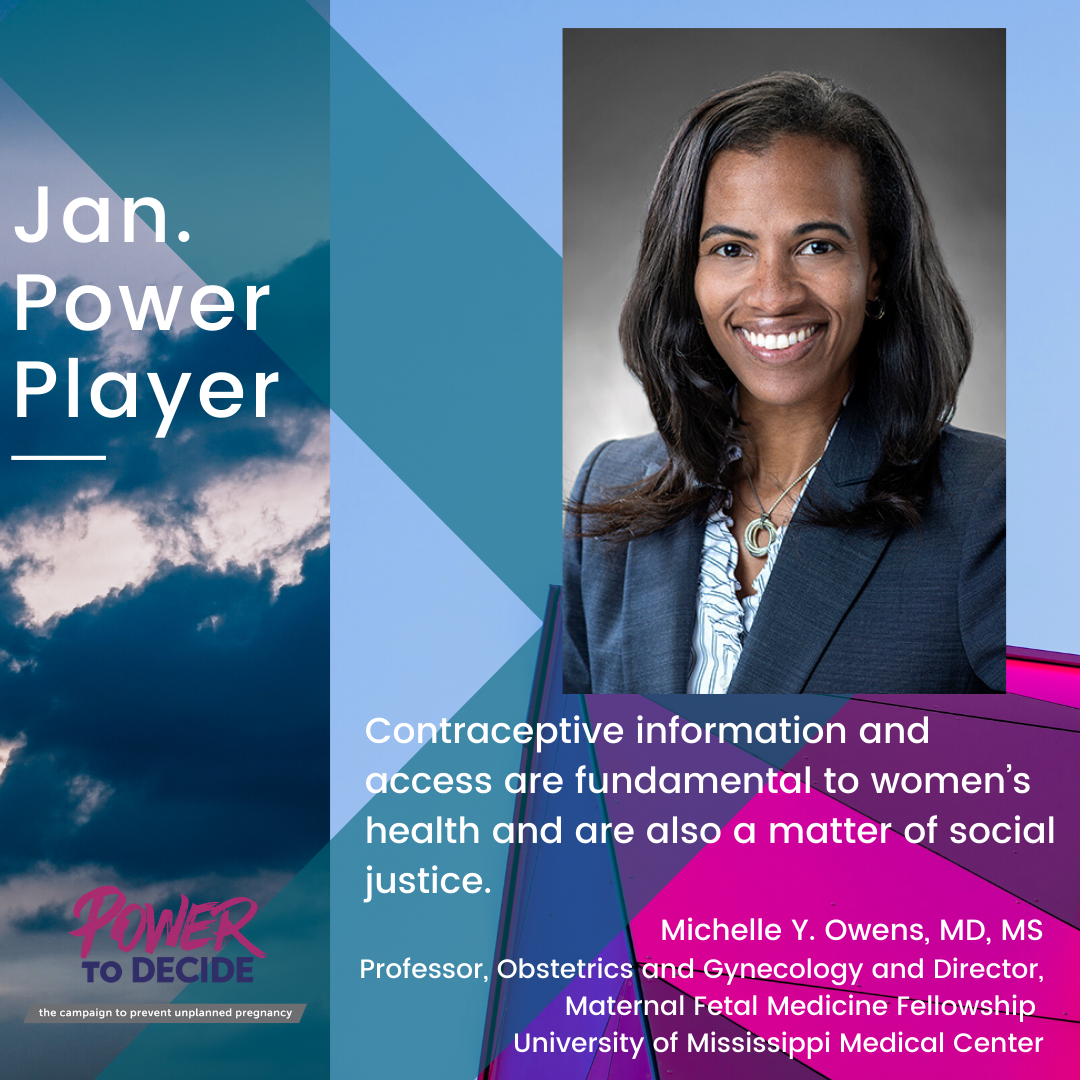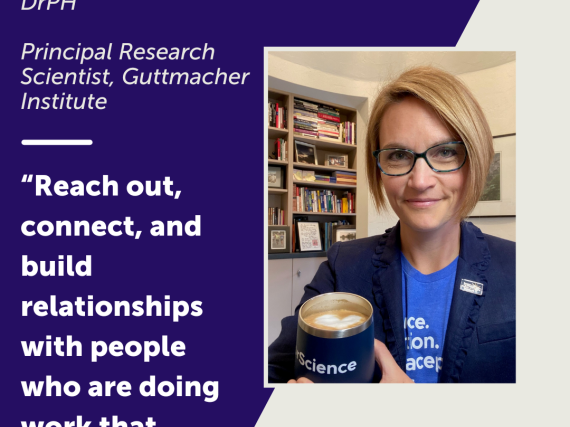January 2020 Power Player
At Power to Decide, we’re committed to uplifting the many individuals on the ground doing the work that matters most. Each month we highlight an individual who is championing the effort to give young people the power to decide if, when, and under what circumstances to get pregnant and have a child. Check out this month's Power Player profile.
Michelle Y. Owens, MD, MS
Professor, Obstetrics and Gynecology and Director, Maternal Fetal Medicine Fellowship, University of Mississippi Medical Center
What work have you done to ensure that young people have access to high-quality sexual health information or high-quality contraceptive services so that they can decide if, when, and under what circumstances to get pregnant and have a child?
I have worked on the national level through ACOG’s Executive Board and more specifically, the Committee on Adolescent Health which focuses not only on contraceptive education and access, but the entire spectrum of healthcare for young adults and teens. Locally, I have worked with community and civic organizations to promote the dissemination of evidence-based, medically-accurate information regarding contraception and general women’s health on a variety of platforms.
How did you get started in your field? What is your driving force?
I was drawn to Obstetrics and Gynecology because of the unique opportunity to care for women over the course of their lifespans. My driving force is my belief that all women should be treated with dignity and respect, and that they have the right to determine what is in the best interest of themselves and their families.
What advice would you give to someone looking to effect change in the field that you currently work in?
I would advise them to be fearless and resilient. There is a lot of misinformation regarding women’s health issues, and it can be frustrating when incorrect information is used to influence patient care and health policy. Unfortunately, our field is also among the most highly politicized, and can be a source of emotionally-charged debate. I believe that it is important that we continue to provide medically accurate information to our patients and the general public to ensure every woman receives the best care.
Why should someone care about ensuring that all people—regardless of who they are or where they live—have access to the information and contraception they need to live their best life story?
The decision of where and when to have children is fundamental in the overall health and welfare of women and their families. This decision impacts not only the short term and long-term health of the mother, but can also affect educational attainment, financial success, and economic stability of her family. Contraceptive information and access are fundamental to women’s health and are also a matter of social justice.
Is there a highlight of your work in conjunction with our organization that you’d like to share?
In addition to this partnership, I Co-Chair the Advisory Board for Converge, a non-profit organization based in Mississippi aimed at reducing barriers to all methods of contraception as part of an overall focus on improving access to high quality, affordable family planning care that is patient centered, and available to all persons.


